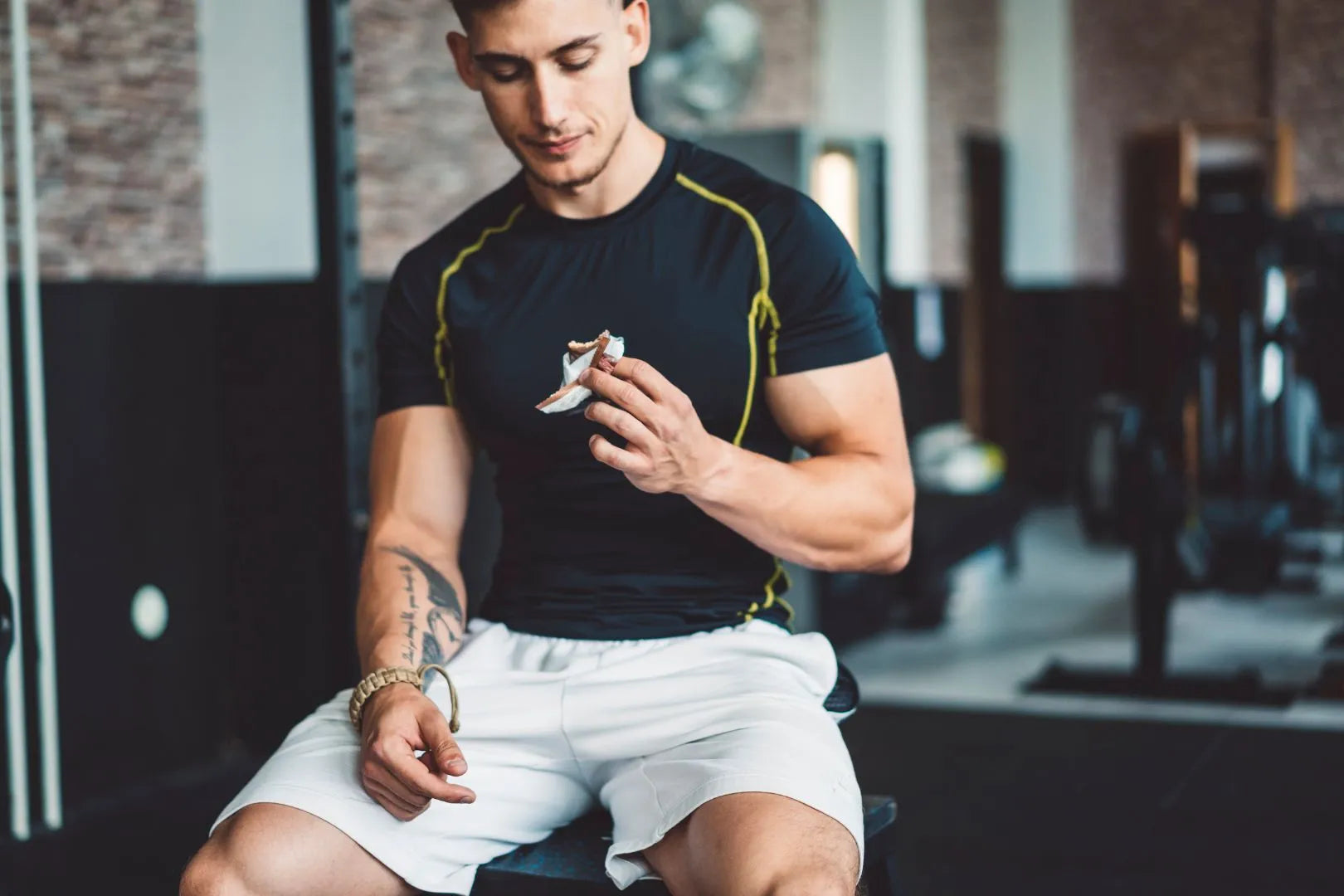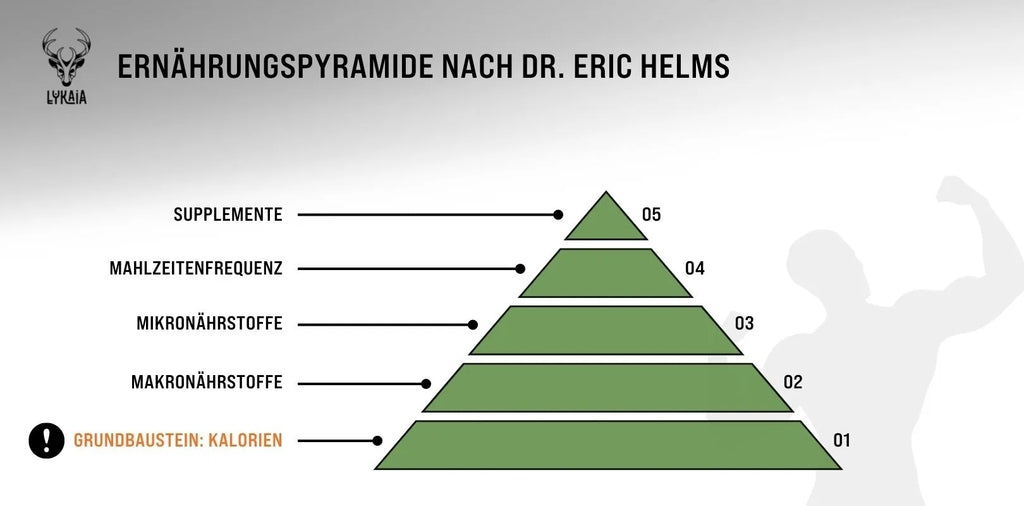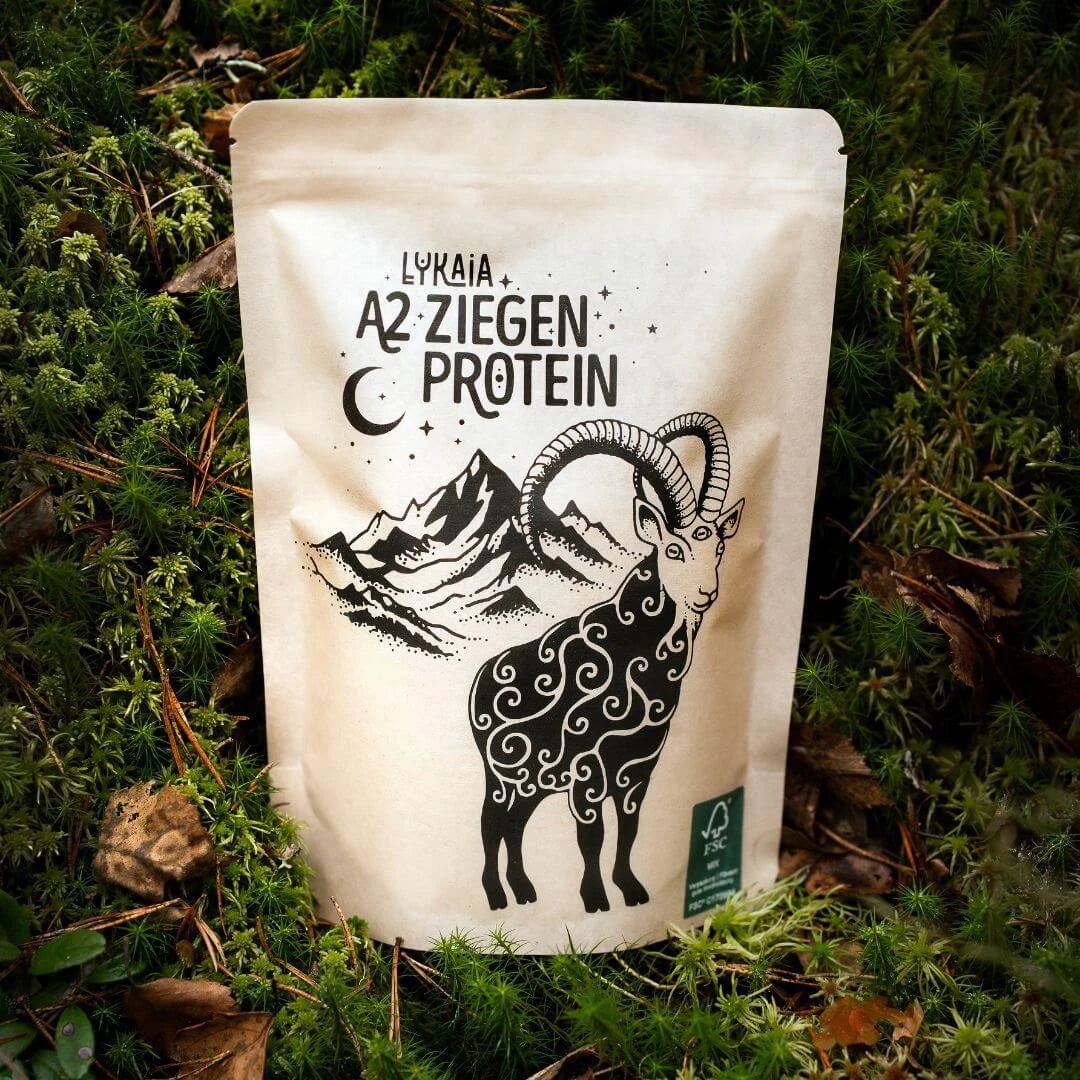Eating around training - when is it best?

- Should I eat after training or before?
- Will I burn less fat if I eat immediately after exercise?
- Is it okay to eat in the evening after exercise?
Maybe you are asking yourself one of these questions?
You are similar to many amateur or even professional athletes. From my practice as a nutritionist, I know that these questions are asked regardless of your level of sporting experience.
The answers are clear depending on your individual goals. But the truth is that in today's flood of information and thousands of myths about nutrition, simple matters are becoming very complicated. What can provide the crucial 0.2% of performance for top athletes is useless knowledge for 99% of people.
You should first internalize the scientific, generally applicable basics before you overemphasize the 297th experience report of an athlete or influencer and optimize it in areas that have no added value for your individual situation.
In this post I answer a selection of the most frequently asked questions about food during training . No matter whether you train in the gym, play sports regularly or do endurance sports 2-3 times a week. The underlying principles for eating before and after exercise are identical.

Through my experience as a fitness athlete who took part in competitions and my many years of experience as a nutritionist, I was able to gain a deep insight into the topic of lived and practical nutrition . So much so that I founded the startup Lykaia and have been able to put functional food and nutritional supplements on the shelves of thousands of customers over the last few years.
I am here for you to provide clarity. As a manufacturer of functional foods, we keep track of things for you in the nutrition forest.
I hope that my personal experiences can help you too.
Table of contents
- Should I eat after training?
- Does eating before or after exercise affect fat loss?
- Should I eat enough before training?
- Which drinks should I drink before and during training?
- What should I eat after training to build muscle?
- What can I eat quickly after training if I don't have time for a proper meal?
- Is it harmful to not eat anything after training?
- What is an exemplary post-exercise meal?
- Is it okay to eat after exercise?
- Conclusion
Should I eat after training?
Yes, you should.
Even though I'm not a fan of blanket statements, the answer is simple.
Why?
You probably exercise for one or more of the following reasons:
- Achieving a certain body image.
- Lose weight.
- build weight.
- Build muscles.
- Increase physical performance.
- Live a long and healthy life.
- Have more general performance in everyday life.
- Improve immune system.
- Reduce stress.
- A change from everyday life.
- have time for you.
- Social aspect through team sports or sports with friends.
- Just like that.
Regardless of the reasons mentioned, one is particularly important. If you are active in sports, you have to ensure your performance. You do this with energy. You get energy through food. Performance-enhancing energy from the right people. This is about healthy and balanced nutrition. (You can find 9 tips for a healthy diet here )
During exercise you burn calories, i.e. energy. You should fill this up promptly after training. This means you can quickly regain your performance or even become more efficient. Otherwise, you run the risk of damaging your regeneration.
Worse – due to a lack of nutrition, you lose performance week after week . This puts a strain on the body. Inflammation and infections are the result . If necessary, you may have to stop your training and forego physical activity for a few weeks.

Note:
It is recommended that sports enthusiasts and professional athletes eat their main meal or “one of their main meals” as quickly as possible (90-120 minutes at the latest) after training. This ensures the earliest possible regeneration and thus readiness for the next training sessions.
Does eating before or after exercise affect fat loss?
If you want to lose weight, there is one factor that determines whether you gain or lose weight. The calorie balance.
If you eat more calories than you burn, you gain weight. If you eat less, you will lose weight. Therefore, it doesn't matter if you eat after exercise to take advantage of the "afterburner effect." For almost every amateur athlete, the effect is so small that it can be considered irrelevant. Save yourself the pointless starvation after your workout.
You lose fat when you fall below your individual daily calorie balance. In this case, you can consume 1900 out of 2000 daily calories after training. If you don't eat another calorie, you will lose weight. The decisive principle in weight control: The basis of the food pyramid according to Eric Helms: the calorie balance.

The much-discussed topic of “cheat days” is closely related to calorie balance. Read more in this post .
Small note: Some research suggests that our bodies use calories consumed in the morning more efficiently than in the evening. This could be beneficial for weight loss.
One reason for this phenomenon is our circadian rhythm . This is the natural, internal process that regulates our sleep-wake cycle over a 24-hour period.
Not only does our circadian rhythm keep us feeling tired at night and awake during the day, it also regulates the timing of the body's processes - including digestion, metabolism and appetite regulation - by releasing certain hormones that depend on what and when we eat, how active we are and what time of day we eat. How strong the effect actually is remains to be seen, so you shouldn't desperately skip your dinner. But it shows that it is not that easy to precisely calculate individual calorie needs.
The composition of the microbiome in the intestine also has an influence on calorie utilization. You can read more about this in our article: Our second brain - The long-underestimated functions of the intestine
Should I eat enough before training?
Eating immediately before training is generally not recommended. Your body is busy digesting food during exercise. This means you develop less performance during training. The consequences are heartburn and nausea. In extreme cases, training or sports can be discontinued.
“But then I have no strength/no energy for training?”
For most people, I recommend just going for it . After a few days, fasted training turns out to be “significantly better” for most people, as long as the rest of their diet fits. Additionally, many report better sleep and a more rewarding feeling when they delay eating until after a workout.
If you still want to start training with a foundation, you can eat a small portion of quickly digestible carbohydrates with 15-30g of protein 90-30 minutes before training to boost your performance. For example, a banana or rice cakes with a whey protein shake. A protein shake can help with a craving up to 30 minutes before training. Be sure to keep pre-workout meals in the 150-200 calorie range.

Note:
In any case, no main meal and no fats directly before training . The more you eat and the more fatty it is, the longer it will stay in your stomach.
Have you ever heard someone say, “Wow, working out on a full stomach is really awesome?” Not me yet. Most of the time, training is postponed until late in the evening because you have “eaten too much”. This often results in reduced sleep quality because your body is still “working”.
Prioritize training. It could be worth it for performance and sleep!
Which drinks should I drink before and during training?
In most cases, plain water is enough. Best still mineral water or slightly chilled tap water. If you train more intensively, mineral water is the better choice. Here you can quickly replenish the minerals excreted through sweat.
Fruit spritzers can be recommended to more experienced and performance-conscious athletes. Mixtures in a ratio of 4:1-2:1 make sense here. The carbohydrates from the fruit juice provide a small energy boost during long endurance exercise over 45 minutes and prevent a drop in performance. You can make fruit spritzers yourself. Mix mineral water with fruit juice in a ratio of 4:1 – 2:1.

If you train less frequently per week due to time constraints, but for longer periods at a time, you can rely on sports drinks. These consist of carbohydrates, essential amino acids and minerals. However, for the vast majority of amateur athletes who train for 30-60 minutes, fruit spritzers or simple (especially still) mineral water are sufficient. If you train for longer, i.e. 60-120 minutes or more at a time, still mineral water mixed with carbohydrates (fruit juices) is a safe decision!
What should you eat after training to build muscle?
To build muscle, you especially need protein. Protein in combination with carbohydrates increases protein biosynthesis. This means that protein can be processed more specifically in the body. This in turn results in better muscle growth. (Read more about protein shakes before or after training and why protein is particularly important here )
After training, you should quickly replenish all energy stores through food and drinks. This ensures regeneration. Muscle growth is guaranteed.
Unfortunately, you usually only have the optimal condition for muscle growth if you have a positive calorie balance. This means that you have to consume more calories than you burn. For example, if you need 2000 calories, an optimal metabolism would be 2250-2500 calories. At the same time, you should spread your protein consumption over several portions a day (you can read more about protein here ).
In order for muscle building and energy supply to function smoothly, the body relies on micronutrients. The body uses a lot of them through sweat and when exposed to free radicals. Sporting activity releases free radicals - the cells are attacked. That's good and normal. However, you should be aware of this.

Potassium, magnesium, zinc, other minerals and vitamins are essential for optimal muscle building. They are responsible for various supporting processes in muscle contraction, the storage of carbohydrates in the muscles, cell building, regeneration and much more.
After training, eat a variety of foods rich in minerals and vitamins. Meat, nuts, legumes, fruit and vegetables are recommended.
In general, what is meant by a healthy and balanced diet!
What can I eat quickly after training if I don't have time for a proper meal?
Since you primarily need protein and carbohydrates, a post-workout snack should contain both. If you can't eat until several hours after training, we recommend a protein shake with a banana or rice cake immediately after the workout . So you have given the body everything it needs to slowly fill its stores.
It is important to rely on a high-quality, quickly available protein, such as whey protein . (read more about it here )
An alternative as a quick after-workout meal are homemade smoothies that you prepare in the morning. These should not only contain fruits and seeds, but should also primarily focus on the protein content.
Be creative. Many athletes, for example, mix whey or casein protein powder with fruit (bananas, kiwis, apples, figs) in a blender with dairy products (quark, cream cheese, yoghurt) and seeds (chia, linseed), as well as nuts (cashews, walnuts, hazelnuts).
Is it harmful to not eat anything after training?
A cautious one, but a general one, yes.
It depends on your objective. However, since you are exhausted after an intensive workout and your energy stores are empty, your body is in a state of deficiency. You can only compensate for this with high-quality nutrients . If you don't do this, the body will try to use its own reserves. Now you might be thinking to yourself, “It’s finally time to get down to business.”
Unfortunately to the wrong people.
For example, the body cannot convert fat into muscle. This is a myth and impossible. Please don't let the fitness experts from the gym next door convince you.
The body will need protein and carbohydrates after training. If you don't get any protein from your diet, protein will be "used up" from your muscles.
Therefore, eating a protein-rich meal after training is particularly useful.
At the same time, your body generally requires energy after a hard workout. If you don't provide him with any, it will reduce his overall performance. Your body goes into energy saving mode. Some report moodiness. Others from sluggishness and the desire to take a nap or a “power nap”.

Work performance and concentration suffer as a result.
Eat after training – at least a snack to compensate for the loss of energy!
Since you probably sweated, you are lacking minerals. You secrete all sorts of essential trace and bulk elements through your sweat. Potassium, iron, magnesium, sodium. This can quickly lead to headaches. Especially in summer.
If you sweat a lot while exercising, this damages your general performance. The body also absorbs water through food. If you generally drink little and forego healthy fruit and vegetables after training, for example, it is likely that you are dehydrated. An additional mineral deficiency can quickly lead to headaches and fatigue.
You should feel good after exercise and not starve yourself pointlessly.
This is rarely a recommended and long-term condition!
Is it okay to eat after exercise in the evening?
Yes, it is.
The question that needs to be answered in this case is: “Does eating after training make sense?” We have already clarified that: Yes.
Even if a meal that is too large or the wrong foods has a negative impact on your sleep quality, it is important to pay attention to this.

Regardless of the time you trained, you need to fill your depleted storage as quickly as possible. If you don't start until the next morning, in extreme cases maybe 16-18 or even 20 hours after training, the body won't be able to recover optimally.
The consequences are a possible micronutrient or protein deficiency. Your performance will be reduced and muscles will definitely not be built up - but broken down.
So follow the answers to the other questions in this article and eat after exercise - even in the evening.
Important when eating after exercising in the evening:
- Try to rely less on fats: no more than 5-10g (approx. 50-100 kcal). The time spent in your stomach could reduce your sleep quality due to the work of digestion.
- Eat moderate amounts of protein with your evening meal: approx. 20-30g (approx. 80-120 kcal). Proteins are particularly complex for the body to digest. If you eat too much protein before bed, you'll literally have a hot night. Try it out. You start sweating.
- Carbohydrates in the evening are okay, so the muscle stores are filled again. Carbohydrates also have a calming effect (sleep-promoting) in the evening: up to 80g (approx. 300 kcal)

What is an exemplary post-exercise meal?
The amount depends on your individual calorie balance. However, you still need different nutrients.
In general, in most cases we recommend a full combination of:
- For quick energy and fiber: pasta, rice, potatoes and bread
- For high-quality protein: fish, meat, dairy products
- For minerals and fiber: All kinds of vegetables
- For good fats: nuts, butter, high-quality oils (olive oil)
- For well-being and vitamins: Fruits with quark, yogurt, cream cheese
- For your kidneys: water, spring water, tap water, mineral water
This way you get important nutrients and get your money's worth.
You can conjure up an endless variety of creations from these basic components.
If possible, please leave sugary products and products loaded with additives out of your diet. In the worst case scenario, 20% processed food. You can read more about the bad properties of additives here .
Possible meals immediately after training:
Example 1: “Time to eat: Hearty, wholesome and delicious”:
Lean minced beef (200g) with imperial vegetables (200g) and potatoes (300g). Plus: low-fat quark (250g) with mixed berries (100g), walnuts (25g) and dark chocolate (15g)
Example 2: “It has to be quick”:
Protein Goatmeal (one serving) with extra whey protein (20g) and blueberries (150g)
Example 3: “It has to happen really quickly”:
Lykaia Willow Whey (30g) with 1 banana (120g)
All of these meals serve their purpose after training. If you follow the rest of the tips, you'll be on the safe side!
Conclusion
Eating after training? Is this okay? In conclusion: yes. Not only is it okay, it is recommended in almost every case. You need energy every day – despite all your challenges. Intensive sport in particular uses up some or all of this energy. If you don't reload quickly, you'll suffer from reduced performance. Once you have internalized this, you can optimize your eating habits around your training.
This does not stand in the way of your individual, overarching goals (e.g. fat loss). As long as you're consuming the right nutrients around your workout, you can still cut calories occasionally in the morning or evening (or in between). There is always a way.
I hope my answers to the most frequently asked questions about nutrition for training could help you too.
If you have any further questions, please feel free to leave a comment.
We at Lykaia look forward to your suggestions and individual questions.
Maybe we can show these in the next blog post if you want.
Your Lykaia team
0 comments








